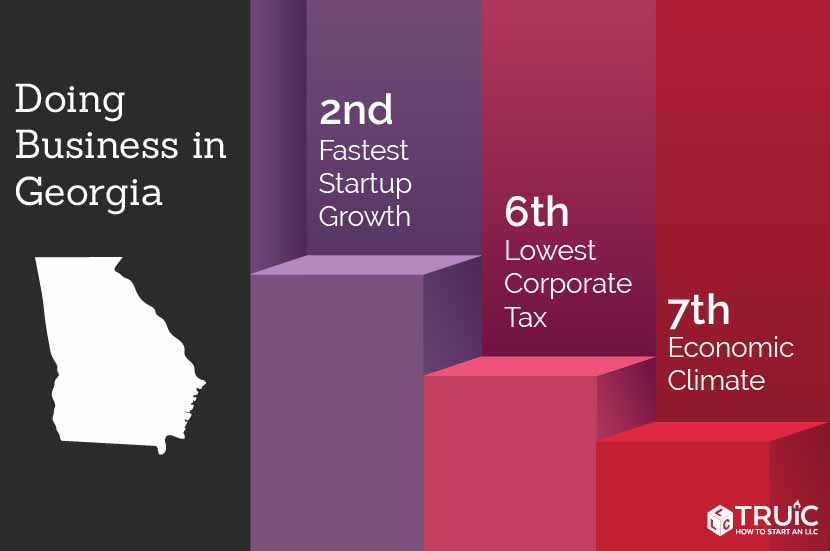The Coronavirus Aid, Relief, and Economic Security (CARES) Act expands the Small Business Administration’s long-standing Economic Injury Disaster Loan Program (EIDL). The EIDL program was created to assist businesses, renters, and homeowners located in regions affected by declared disasters.
Optional cookies and other technologies
Atlanta Small Business Start-up Guide Karen C. Drescher, CPA, CGMA May 29th, 2015 Category: City Guides On December 22, 2017, The Tax Cuts and Jobs Act was signed into law. Small businesses pay an average of 19.8 percent in taxes depending on the type of small business. Small businesses with one owner pay a 13.3 percent tax rate on average and ones with more than one owner pay an average of 23.6 percent. Small business corporations (known as “small S corporations”) pay an average of 26.9 percent, according to the Small Business Administration. Here is the definitive list of Atlanta's small business accountants as rated by the Atlanta, GA community. Tax needs and able to guide me through the complexities. Atlanta Small Business Start-up Guide Karen C. Drescher, CPA, CGMA May 29th, 2015 Category: City Guides On December 22, 2017, The Tax Cuts and Jobs Act was signed into law.
We use analytics cookies to ensure you get the best experience on our website. You can decline analytics cookies and navigate our website, however cookies must be consented to and enabled prior to using the FreshBooks platform. To learn about how we use your data, please Read our Privacy Policy. Necessary cookies will remain enabled to provide core functionality such as security, network management, and accessibility. You may disable these by changing your browser settings, but this may affect how the website functions.

To learn more about how we use your data, please read our Privacy Statement.
Atlanta Small Business Association
Most states tax at least some types of business income derived from the state. As a rule, the details of how income from a specific business is taxed depend in part on the business’s legal form. In most states corporations are subject to a corporate income tax, while income from pass-through entities such as S corporations, limited liability companies (LLCs), partnerships, and sole proprietorships is subject to a state’s tax on personal income. Tax rates for both corporate income and personal income vary widely among states. Corporate rates, which most often are flat regardless of the amount of income, generally range from roughly 4% to 10%. Personal rates, which generally vary depending on the amount of income, can range from 0% (for small amounts of taxable income) to around 9% or more in some states.
Currently, six states – Nevada, Ohio, South Dakota, Texas, Washington, and Wyoming – do not have a corporate income tax. However, four of those states – Nevada, Ohio, Texas, and Washington – do have some form of gross receipts tax on corporations. Moreover, five of those states – Nevada, South Dakota, Texas, Washington, and Wyoming – as well as Alaska and Florida currently have no personal income tax. Individuals in New Hampshire and Tennessee are only taxed on interest and dividend income.
Apart from taxing business income through a corporate income tax or a personal income tax, many states impose a separate tax on at least some businesses, sometimes called a franchise tax or privilege tax. This is frequently justified as a tax simply for the privilege of doing business in the state. As with state taxes on business income, the specifics of a state’s franchise tax often depend in part on the legal form of the business. Franchise taxes are generally either a flat fee or an amount based on a business’s net worth.
Georgia has both a corporation net worth tax and a corporate income tax. Your business may be subject to one, both, or neither of these taxes. Additionally, if income from your business passes through to you personally, that income will be subject to taxation on your personal state tax return.
The net worth tax applies to traditional C corporations, pass-through S corporations, and LLCs electing to file taxes as corporations. Net worth is based on capital stock, paid in surplus, and retained earnings. The tax is graduated, and ranges from a minimum nothing for $100,000 or less of net worth up to a maximum of $5,000 for net worth over $22 million. You can find complete net worth tax tables for recent years in Georgia booklet IT 611. The booklet is published and made available online at the end of each year.
Traditional corporations must also pay Georgia’s corporate income at a flat rate of 6% of federal taxable income, with adjustments.
Let’s briefly look at additional details for five of the most common forms of Georgia business: corporations (C corporations), S corporations, LLCs, partnerships, and sole proprietorships.
Corporations
Georgia corporations are subject to Georgia’s corporate income tax at a flat rate of 6% of federal taxable income, with adjustments. In addition, Georgia corporations must pay the corporation net worth tax.
Example: For the 2017 tax year, your Georgia corporation had federal taxable income of $500,000 and the corporation’s net worth, based on capital stock, paid in surplus, and retained earnings, was $1,000,000. Other things being equal, and excluding adjustments, your corporation will owe Georgia corporate income tax in the amount of $30,000 (6% of $500,000). The corporation will also owe Georgia corporation net worth tax in the amount of $500 (based on the tax table in IT 611).
S Corporations
An S corporation is created by first forming a traditional corporation, and then filing a special form with the IRS to elect S status. Unlike a traditional corporation, an S corporation is not subject to separate federal income tax. Rather, taxable income from an S corporation is passed through to the individual shareholders, and each individual shareholder is subject to federal tax on his or her share of the corporation’s income. In other words, S corporations are pass-through entities. (Note that a shareholder’s share of the S corporation’s income need not actually be distributed to the shareholder in order for the shareholder to owe tax on that amount.) Georgia recognizes the federal S election in cases where all corporation shareholders are Georgia residents. In such cases, a Georgia S corporation is not required to pay income tax to the state. (Note, however, that special rules, not covered here, apply if there are corporation shareholders who are nonresidents.) Each individual S corporation shareholder will owe state tax on his or her share of the company’s income. S corporations are also required to the pay the corporation net worth tax.
Example: For the 2017 tax year, your Georgia S corporation, for which all shareholders are Georgia residents, had federal taxable income of $500,000 and the corporation’s net worth, based on capital stock, paid in surplus, and retained earnings, was $1,000,000. The corporation will owe Georgia corporation net worth tax in the amount of $500 (based on the tax table in IT 611). The corporation’s net income will be allocated to you and your fellow shareholders, and you will each pay tax on your own portions on your individual state tax returns. Rates will vary depending on overall taxable income.
Limited Liability Companies (LLCs)
Like S corporations, standard LLCs are pass-through entities and are not required to pay income tax to either the federal government or the State of Georgia. Instead, income from the business is distributed to individual LLC members, who then pay federal and state taxes on the amounts allocated to them.
While by default LLCs are classified for tax purposes as partnerships (or, for single member LLCs, disregarded entities), it is possible to elect to have your LLC classified as a corporation. In that case, the LLC would also be subject both to Georgia’s 6% corporate income tax and the corporation net worth tax.
Example: For the 2017 tax year, your multi-member LLC, which has the default tax classification of partnership, had federal taxable income of $500,000. The $500,000 in net income will be divvied up between you and your fellow LLC members, and you will each pay tax on your respective portions on your respective, individual Georgia tax returns. Rates will vary depending on overall taxable income.
Partnerships
Georgia partnerships are subject neither to Georgia’s corporate income tax nor to the state’s net worth tax. Instead, income from the business is distributed to the individual partners, who then pay tax on the amount distributed to them on both their federal and state tax returns.
Example: For the latest tax year, your partnership had net income of $500,000. This amount will be divvied up between you and your fellow partners, and you will each pay tax on your respective portions on your respective, individual Georgia tax returns. Rates will vary depending on overall taxable income.

Sole Proprietorships
Georgia sole proprietorships are subject neither to Georgia’s corporate income tax nor to the state’s net worth tax. Instead, income from your business will be distributed to you as the sole proprietor, and you will pay tax on that income on your individual federal and state tax returns.
Example: For the latest tax year, your sole proprietorship had net income of $100,000. The $100,000 in net income is distributed to you personally, and you pay tax on that income on your individual federal and state tax returns.
Note on Multistate Businesses and Nexus

Our primary focus here is on businesses operating solely in Georgia. However, if you’re doing business in several states, your business may be considered to have nexus with those states, and therefore may be obligated to pay taxes in those states. Also, if your business was formed or is located in another state, but generates income in Georgia, it may be subject to Georgia taxes. The rules for taxation of multistate businesses, including what constitutes nexus with a state for the purpose of various taxes, are complicated. If you run such a business, you should consult with a tax professional.
Additional Information
For further guidance on Georgia’s corporation income tax and corporate net worth tax, visit the State of Georgia Department of Revenue. For information on business-related taxes in other states, check Nolo’s 50-State Guide to Business Income Tax. And, if you’re looking for detailed guidance on federal income tax issues, check Tax Savvy for Small Business, by Frederick Daily (Nolo).
Guide To Atlanta Small Business Tax Assistance
Updated: June 2018
